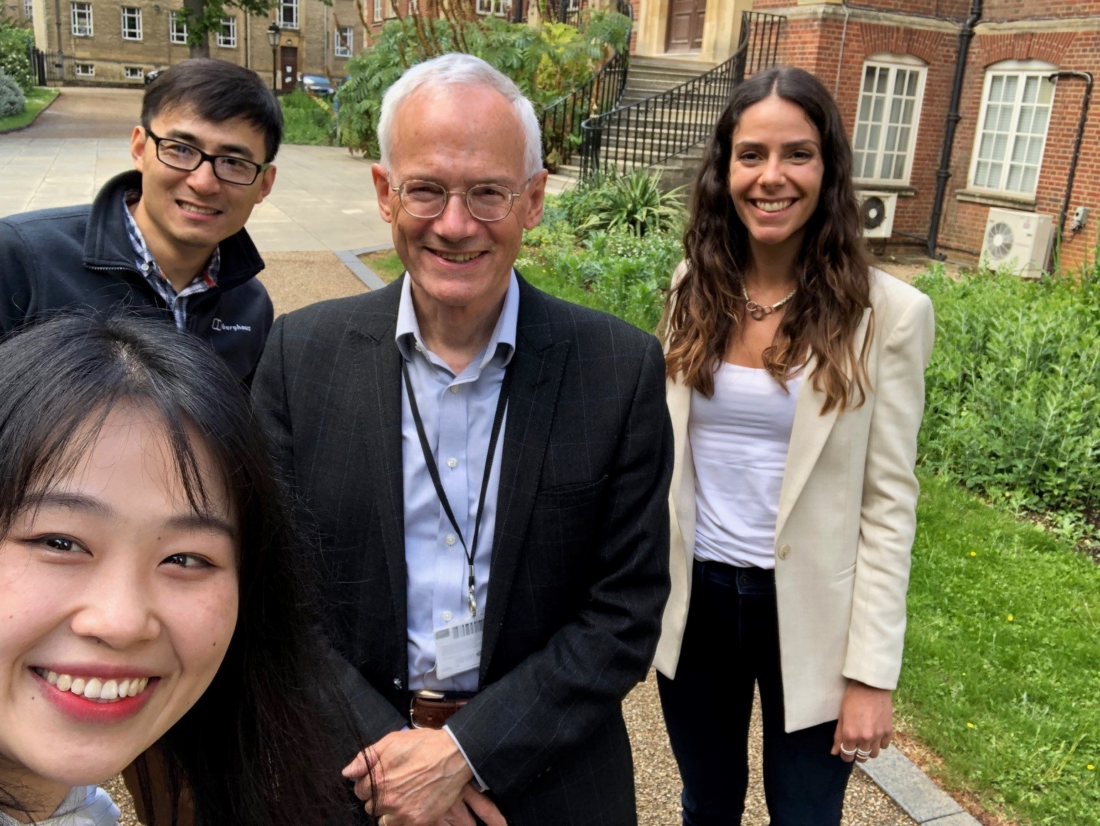Prof Geoffrey L Smith (re)joins the Dunn School
Poxviruses are large DNA viruses that replicate in the cytoplasm and encode many proteins that aid evasion of host innate immunity. The most infamous poxvirus is variola virus that caused smallpox, a disease declared eradicated in 1980 by the World Health Organization following widespread vaccination with the related orthopoxvirus, vaccinia virus. Thereafter, poxviruses have not caused major outbreaks in humans until a global monkeypox virus (mpox) epidemic in 2022.
The Smith group is interested in understanding how viruses cause disease and escape the host response to infection. They study the mechanisms by which orthopoxviruses suppress innate immunity, both by examining the function of individual virus proteins, but also by studying how the host cell proteome changes after virus infection.
Recently, the group’s attention turned to the worldwide outbreak of mpox that represents the largest mpox outbreak ever and the first time that sustained human to human transmission has been noted. The Smith group is part of a consortium of 12 institutions across the UK that are working together to tackle the mpox outbreak, supported by the BBSRC and the MRC.
Geoffrey Smith was a PI in the Dunn School from 1989-2000, thereafter becoming head of the Department of Virology at Imperial College London and, from 2011-22, Professor of Pathology and head of the Department of Pathology in Cambridge. Despite his many years outside Oxford University, he always lived in the county, and so returning to the Dunn School was an obvious choice.
Prof Smith has been the recipient of numerous honours, including the Royal Society’s Leeuwenhoek Medal and Lecture, the GlaxoSmithKline International Member of the Year Award by the American Society for Microbiology and the Feldburg Foundation Prize. He is a Fellow of the Royal Society, the Academy of Medical Sciences and a member of the German Academy of Sciences, Leopoldina.
Members of the Smith lab coming from Cambridge are Yongxu Lu (senior postdoc), Qi Zhong (postdoc) and Ana Gali Macedo (PhD student).
Explore more
Smith Group
The Smith group study the mechanisms by which orthopoxviruses suppress innate immunity to improve the safety and immunogenicity of poxvirus-based vaccines and to better understand how viruses cause disease and escape the host response to infection.
Infection and Immunity
Several Dunn School groups use a range of approaches to investigate antigen presentation and immune regulation during health and disease and study the mechanisms that enable bacterial and viral pathogens to invade and proliferate inside their hosts.
More news
The latest news stories and research highlights from the Dunn School.